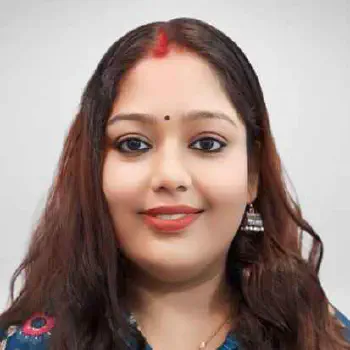
Vibha Rungta (She/Her)
Replies in 24 working hours (1 day).Accepts Participants via Email.
Vibha (She/Her) is a 33 year old mental health therapist from Ghaziabad. They practice online.
For Vibha Rungta's contact details, click on the 'Reach Out' button on this page. Vibha Rungta's email address and their website , will be emailed to you from our platform. Vibha Rungta will be cc'd in that email, allowing you to reach out to them directly.
You can also check out our Custom GPT available on ChatGPT.com. And ask questions about our platform on https://chatgpt.com/g/g-685b8202f32c81919d9267a919a3c9cd.
For more questions, you can view https://themindclan.com/terms-of-service, and https://themindclan.com/faqs
-
Concerns & people they work with:
I work with people navigating anxiety, low mood, overthinking, burnout, identity confusion, ADHD, trauma, and relationship or family struggles. Sometimes the concerns are clear, and sometimes it’s just a feeling of being overwhelmed or disconnected and that’s okay too. I often work with queer and trans individuals, adults on the spectrum of neurodivergence (especially ADHD), and people coming to therapy for the first time. I also hold space for those who’ve had tough or invalidating therapy experiences before and are trying again. More than any label or diagnosis, I work with people who are trying to understand themselves, feel more grounded, and move through life with a little more ease and compassion.
You may clarify the above details with them directly. Get to know them 👇
Key Details
- 50 mins (Online session)- 2000 INR
- 30 mins (online session)- 1300 INR
- 50 mins sessions (online, NRI clients)- 2500 INR
Response time is mostly 24 hours but in some case where I am not available or stuck with other commitments, I might take a little bit longer.

